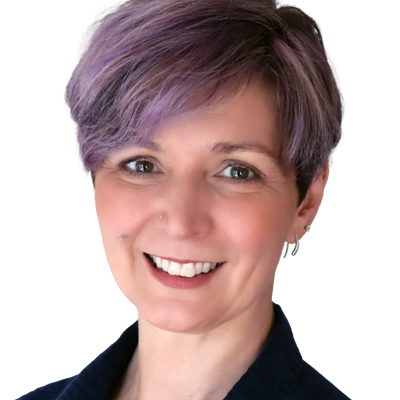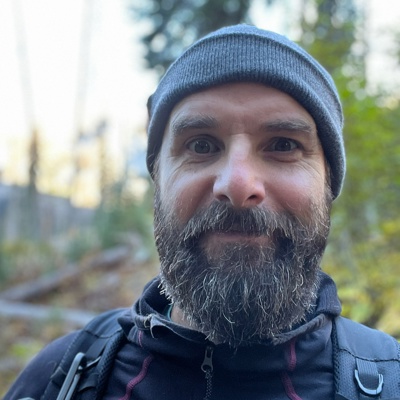- Speakers
Diana Montalion and Matt Wynne


- Schedule
- Friday 31 from 11:00 until 13:00
- Slides
- Download slides
- Description
(This is a hands-on lab with limited capacity)
Systems experts have taught us how to improve our software systems: First, understand that technology systems are always, also people systems. Second, recognize that we need to think in systems.
Peter Senge has demonstrated that we blame the wrong things (events, situations or processes) for our systemic problems. W. Edwards Deming says that 94% of the time, the system is to blame for performance issues, not the individual parts of the system, Jay Forrester discovered counterintuitiveness: most organizations “fix” systemic problems by inadvertently making them worse. Donella Meadows said, “We'll go down in history as the first society that wouldn't save itself because it wasn't cost-effective.”
In this workshop, we will use the Iceberg Model to explore a complex system challenge. As a software professional, you can use this approach whenever you want to understand the root cause of a system challenge. The system we will focus on is one we all know: the technology industry.
Specifically, we’ll use the Iceberg Model to uncover the core mental models, patterns and structures that generate and reinforce patriarchy in software development.
In 2022, 92% of developers were male. Software development is a patriarchal system: a system in which men hold the power and women are largely excluded from it. Despite sincere efforts, this outcome persists, which indicates that we are blaming, and changing, the wrong things. Let’s dive deeper (together).
We will:
- Understand the value of the Iceberg Model.
- Explore the structures and patterns that reinforce patriarchy in software development.
- Identify core mental models that reinforce those structures and patterns.
- Understand the impact on software and systems design.
- Envision (together) a target system architecture – what might the world look like if a radical change is possible?
- Model and explore ways we can positively impact the current system.
Patriarchy creates dichotomies – us vs them, men vs women. We won’t reinforce that mental model. Instead, we will practice identifying reinforcing feedback loops and introduce a tool for analyzing them.
https://bootcamp.uxdesign.cc/systems-thinking-the-iceberg-model-6294bc5346f0 https://www.statista.com/statistics/1126823/worldwide-developer-gender/
Prerequisites
Recognizes the problem of gender imbalance in our industry and is curious about understanding and changing its root causes. Also, interested in systems design tools and approaches.
About Diana Montalion
Diana is the author of the upcoming O'Reilly book, Learning Systems Thinking: Essential Nonlinear Skills & Practices for Software Professionals. She has almost 20 years experience engineering and architecting software systems for organizations including Stanford, The Gates Foundation, Memorial Sloan Kettering and Teach For All. She has served as Principal Systems Architect for The Economist and The Wikimedia Foundation. Her company, Mentrix, publishes courses and learning materials for aspiring nonlinear thinkers and builds modern software systems for diverse clients. Diana lives in the Hudson Valley (New York, USA) with three dogs, one cat and nine chickens.
About Matt Wynne
Matt was lucky enough to start programming in the mid 1980s when his dad brought home a BBC Micro from work.
He's been making a living as a programmer since the late 1990s, and started trying to sneak agile practices into his work ever since he discovered the C2 Wiki in 2001. He was once fired for doing Test-Driven Development (TDD), because he was “going too slow”.
In 2008 he joined the fledgling Cucumber open source project, and in 2011 the first edition of The Cucumber Book was published, co-written with Aslak Hellesøy, the creator of Cucumber.
In 2013 Matt co-founded Cucumber Limited together with Aslak and Julien Biezmans. They grew this consulting and training business to around $1.5m turnover, training thousands of people around the world in Cucumber and Behaviour-Driven Development (BDD), adding Seb Rose and Steve Tooke then Dr. Sal Freudenberg as partners.
Matt developed the practice of Example Mapping whilst training a team in St. Louis, Missouri.
Matt acted as Cucumber Ltd’s CEO for most of it’s life, handing over to Sal in the autumn of 2018. In 2019 Cucumber was acquired by SmartBear. Matt worked for them as full-time lead of the Cucumber Open source project until February 2023. One of his initiatives was finding ways to tackle the structural sexism and racism in open source.
Originally from northwest England, he now lives in the mountain town of Nelson, BC in Canada on the unceeded territory of the Ktunaxa Nation, Sinixt Nation, and Syilx Peoples with his wife, two kids, a dog and a couple of cats. He enjoys back-country skiing, trail running and woodworking.